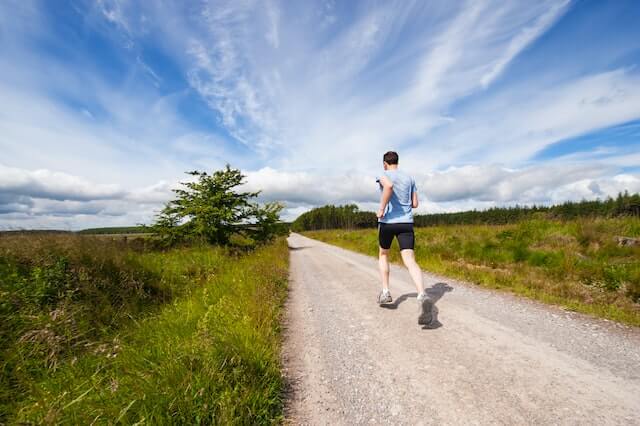Alcohol cravings are an overwhelming sense or desire to consume alcohol. Making the choice to stop drinking is a big one. Withdrawal symptoms can be managed, but the continued cravings for alcohol can be extreme and oftentimes lead to more alcohol consumption. There are many home remedies and naturopathic treatments for common conditions. Wouldn’t it be great if there were some natural remedies to reduce alcohol cravings? Actually, there are quite a few of them.
Why You Get Cravings When You Quit Drinking
Cravings for alcohol are strong urges and desires to drink. Triggers may be internal or external or caused by people, situations, or even memories. These urges are common to those who are trying to quit drinking. Cravings may start in response to a negative or positive thought or feeling. One second you are fine; the next, you are dealing with a nearly irresistible urge for a drink of alcohol.
Craving alcohol puts you into a state of anticipation, and you desire a drink. Cravings affect everyone’s body differently. One person may have a heightened heart rate; another may have a depressed heart rate. Cravings are not your fault but rather symptoms of addiction. Your brain is to blame for your cravings; that’s almost always where they start.
As you begin to withdraw from alcohol, certain neurochemicals are suppressed, and that triggers the brain to demand more alcohol. It wants to reach homeostasis or the normal state of functioning. But the brain has been trained to need alcohol to function, so when it doesn’t have the chemicals it’s used to, it starts requesting alcohol.
Alcohol floods the brain with chemicals like dopamine. When you stop drinking, the brain still thinks it needs the chemicals. When you are exposed to a memory or stimulus that triggers memories, the brain starts begging you for more chemicals, and cravings are born.
10 Natural Remedies to Reduce Alcohol Cravings
Alcohol addiction can cause many adverse health conditions. Not only does drinking affect your body, but it can also damage your brain. Dealing with alcohol cravings is extremely difficult. The good news is that there are some natural remedies that can help you reduce alcohol cravings without causing adverse side effects. Here are 10 natural remedies to reduce alcohol cravings.
- Drink Plenty of Fluids
When your body is going through alcohol withdrawals, it can become dehydrated, which can cause cravings to intensify. Replenishing liquids can help your body and electrolytes stay balanced. It also helps the body flush toxins out of the body. Avoid beverages with caffeine as they tend to cause dehydration. Instead, drink lots of water, fruit juices, or other drinks that contain plenty of electrolytes.
- Get Plenty of Exercise
Exercising can be beneficial for helping reduce cravings while you are detoxing. The liver is responsible for flushing toxins out of the body and consuming alcohol puts a lot of pressure on this organ. Exercising helps boost the liver at a cellular level. The runner’s high is real as exercise stimulates the brain to release “feel good” hormones.
- Consume a Well-Balanced Diet
Eating a well-balanced diet will help ensure you get the essential nutrients you need. Nuts, whole grains, sprouts, vegetables, lean meats, and fruit are loaded with nutrients that can help manage cravings and detox the body. Eating fresh foods rich in potassium, magnesium, calcium, and vitamins B and C can help your recovery and reduce cravings.
- Herbs to Reduce Alcohol Cravings
Many different herbs serve as natural remedies to reduce alcohol cravings. Many of them are available in capsule form or can be made into teas. Milk thistle contains silymarin, an antioxidant that helps restore liver health. Kudzu is a Chinese herb that helps reduce the desire for alcohol. Ashwagandha helps reduce anxiety associated with alcohol withdrawal and can help reduce cravings. St. John’s Wort is a natural antidepressant that can help stop cravings and improve your mood.
- Find a Support Community
You need support while you are going through the withdrawal process. Consider developing new relationships with others who also choose to avoid alcohol consumption. Cultivate new friendships with those who do not prioritize drinking as an essential part of their lives. Some regions have sober bars where people can socialize without alcohol. Create your own healthy support system of friends, family, and community organizations that will be there to help when you deal with cravings.
- Yoga and Meditation
Yoga helps you put your mind at ease. It teaches you how to breathe deeply, focus, and relax. Meditation also helps you be more mindful and relaxed so you can focus. This dynamic duo can help calm both mind and body. They are useful for helping break the alcohol habit by helping you achieve the focus you need.
- Acupuncture
Acupuncture is another natural remedy to help reduce alcohol cravings. It has long been a part of traditional Chinese medicine and helps reduce cravings and ease many of the symptoms of withdrawal. During a session, super tiny needles are inserted at strategic points in the body. The procedure helps restore balanced dopamine levels, which can help curb the desire to consume alcohol.
- Light Therapy
Light therapy, or phototherapy, is the process of exposing yourself to a lot of light during the daytime. Alcohol withdrawal often causes insomnia and other sleeping problems. Exposure to sunlight can help restore a natural sleep cycle.
- Develop New Hobbies
Developing new daily activities is helpful for beating cravings. It may be something as simple as taking long walks or having conversations with friends and family. If you like sports, sign up for a league near you. Take a trip to the library to find an interesting book to read. Learn to paint. Giving your mind something to dwell on can help keep you out of the mindset that depends on alcohol.
- Stress Management
It is very likely that you used alcohol as a way to deal with stress. Reducing stress is one of the preferred remedies to reduce alcohol cravings. Yoga and meditation are great places to start. Other ways to manage stress include getting adequate sleep, limiting caffeine, doing deep breathing exercises, and listening to music.
Some say alcohol cravings are the hardest part of withdrawals. You need all the help you can get. Supplements like BioRebalance Restore can be helpful for helping curb cravings, improving your mood, and helping support relaxation while providing nutritional support to combat deficiencies.
Dr. Rebeca Eriksen, PhD MSc BSc (Hons) RD, is the Co-Founder at BioRebalance. She has a PhD in Nutritional Genetics from Imperial College London, and over ten years of clinical experience designing custom nutritional repair regimens for patients recovering from alcohol addiction and other disorders.

